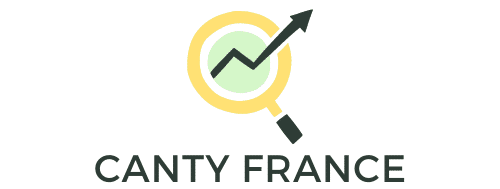Horizon europe: unlocking funding for innovation and research

Horizon Europe represents a transformative shift in how the European Union supports research and innovation, with a budget of €95.5 billion poised to foster ground-breaking projects. This initiative focuses on five missions aimed at addressing societal challenges, from climate change adaptation to cancer care improvement. Understanding funding opportunities, application processes, and eligibility criteria is essential for researchers seeking to make an impact. Explore how Horizon Europe can unlock your potential for innovation and research advancement.
Overview of Horizon Europe
Horizon Europe, the European Union's flagship funding initiative, ushers in a new era of research and innovation with an expansive budget of €95.5 billion. This sweeping program underscores the EU's commitment to enhancing scientific prowess and tackling global challenges like climate change. Notably, the program's key missions target climate adaptation in at least 15 regions and aim to improve health outcomes for over three million cancer patients by 2025. You can explore further details on its objectives and strategic allocation of funds on this page: https://www.welcomeurope.com/en/programs/horizon-europe/.
A lire aussi : How to Address the Gender Pay Gap in UK Technology Companies?
Key Missions for 2021–2027
A defining aspect of Horizon Europe is its ambitious set of goals for 2021–2027. By focusing on climate change, health, and other societal issues, it aligns with global imperatives. Projects under this framework benefit from simplified cost-reporting, an improvement applauded by researchers for enhancing grant management efficiency.
Collaborative Approach
The program extends beyond EU nations, welcoming involvement from "Associated Countries". This collaborative avenue fosters inclusive research partnerships, creating a vibrant ecosystem of innovation. Coupled with a mission-oriented focus, Horizon Europe ensures integration with broader EU priorities for sustainability and digital advancement, making significant strides toward building a resilient Europe.
A lire également : What Compensation Strategies Are Effective for UK Start-Ups to Attract Top Talent?
Funding Structure and Opportunities
Overview of Funding Schemes
Horizon Europe, allocated a budget of €95.5 billion, is the European Union's primary mechanism for advancing research and innovation from 2021 to 2027. It is structured into three principal pillars:
- Excellence Science, focusing on pioneering research through the European Research Council (ERC) and Marie Skłodowska-Curie Actions (MSCA).
- Global Challenges and European Industrial Competitiveness, targeting diverse sectors such as health, culture, and climate.
- Innovative Europe, which aims to foster disruptive innovations via the European Innovation Council (EIC).
Eligibility Criteria for Applicants
Eligibility under Horizon Europe is extensive, welcoming participation from various legal entities within EU and associated countries. This inclusivity aims to enhance collaborative efforts on a global scale. Key considerations include the capacity to integrate sustainable practices and address specific EU policy priorities.
Application Process and Guidelines
Applicants need to navigate through the Funding and Tenders Portal, a centralized resource offering detailed guidance on calls for proposals. The process is designed to be straightforward, with streamlined cost-reporting procedures enhancing efficiency. Ensuring compliance with open science policies and ethical research standards is crucial for successful proposal submission.
Key Features and Best Practices
Partnerships and Consortium Building
Partnerships play a pivotal role in the success of Horizon Europe projects. They enable diverse skills and expertise to converge, creating holistic solutions to complex challenges. Building a strong consortium is imperative for navigating the multifaceted demands of the program. Potential collaborators often include universities, research bodies, SMEs, and public organizations across Europe and associated countries. Effective collaboration requires transparent communication, shared objectives, and complementary capabilities among partners.
Success Stories and Project Examples
Understanding past successes provides concrete insights into what works. An exemplary case is the €95.5 billion allocation for projects that promote climate resilience and health advancements, impacting millions across Europe. By exploring successful Horizon Europe projects, new applicants gain valuable perspectives on impactful proposal traits and the criteria that resonate with evaluators. These case studies highlight themes of innovation, strategic alignment, and tangible societal benefits, guiding future applications.
Best Practices for Writing Winning Proposals
Crafting proposals that capture Horizon Europe's goals necessitates meticulous attention to detail. Proposals must clearly articulate objectives and demonstrate alignment with the program's mission. Incorporating dissemination strategies that emphasize transparency and community involvement strengthens applications. A thorough understanding of the administrative procedures enhances compliance with guidelines, minimizing barriers to approval. Employing these practices increases the likelihood of securing funding and successfully realizing research ambitions.
